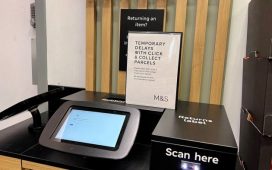Ministers are urging companies to tap the EU’s Horizon research programme to get value for the near €2.5bn the UK government is paying annually to reconnect to the scheme after Brexit.
The government will launch an advertising blitz on Monday aimed mainly at tens of thousands of businesses that are eligible for funding from the €95.5bn pot but have never applied.
The publicity campaign highlights the pressure on industry and academia to plug into Horizon after the Treasury and prime minister Rishi Sunak questioned previously whether it was a good investment.
The UK relinked to the Horizon science programme this month, under a deal previously stalled by disagreements with the EU on other aspects of Brexit.
“This is the world’s largest research collaboration project,” said Michelle Donelan, secretary of state for science, industry and technology. “We have this incredible opportunity. Let’s not waste it — let’s seize it.”
The government initiative is targeting smaller companies in particular, since it believes they are an untapped source of Horizon applications. Officials estimate there are about 65,000 UK businesses with research and development interests that make them eligible for Horizon funding.
Successful UK applications to the programme totalled about 2,400 in 2015, the year before the Brexit referendum, according to the same official estimates. They had fallen to around 2,000 in 2020, the last year before Brexit took the UK out of the scheme, a decline that reflected in part uncertainties about the future of the UK-EU relationship.
The government is highlighting examples such as Nova Innovation, which is part of a pan-European consortium benefiting from €20mn of Horizon funding to develop tidal energy in Orkney.
“We want to encourage, incentivise and enable people to be able to participate — and make sure that it’s as open and accessible as possible,” Donelan said in an interview. “So [we are] targeting those that wouldn’t normally in the past have potentially known about Horizon or got involved.”
The advertising campaign on billboards, social media and audio will seek to revive Britain’s once leading position in Horizon after a three-year absence. The main campaign visuals don’t mention the EU, citing instead “Horizon Europe” — the name of the scheme’s current seven year grant-making programme.
Donelan defended the decision to play down the EU dimension of Horizon. “It says ‘Europe’,” she said of the promotional material. “Don’t forget Horizon is not just an EU scheme,” she added, pointing to the involvement in it of other non-EU “associate countries” such as New Zealand and Israel.
Donelan said she was not worried that the campaign might be unintentionally undermined by the unrelated scandal over the Post Office’s Horizon computer system.
The visuals “all clearly show science or technology or space”, as well as including accompanying text about Horizon Europe. “I don’t think anybody — once they see the creative — will be confused by that,” she said.
The latest government push on Horizon Europe comes as it offers “pump-priming” grants of up to £10,000 for potential applicants, administered via the British Academy, the Academy of Medical Sciences, the Royal Society and the Royal Academy of Engineering.
These funds are to help UK-based researchers and businesses prepare proposals for collaborations with counterparts in the 27-member EU or other Horizon associate countries.










